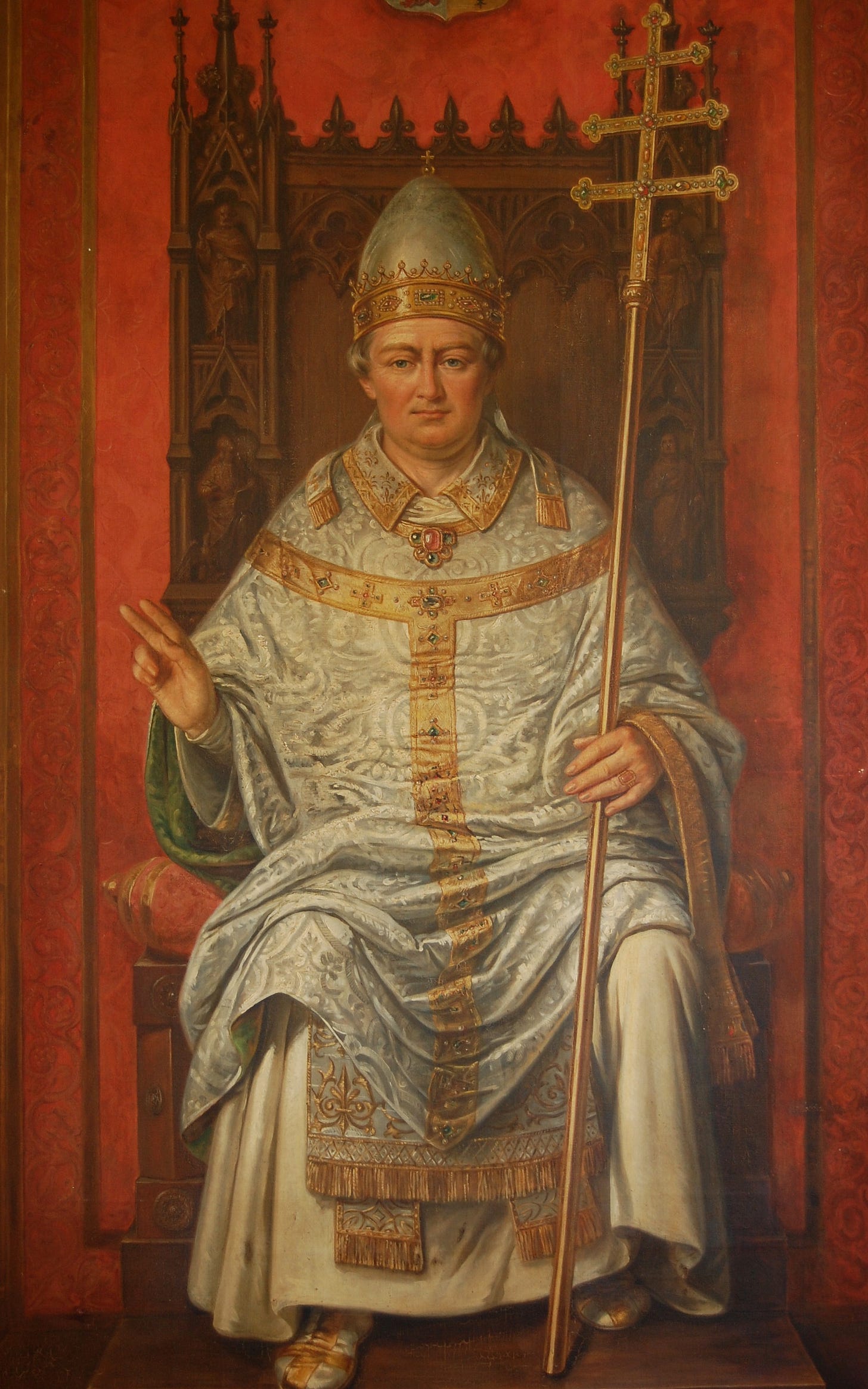The death of St. Thomas Aquinas' pope
Usually people retire in their 60s, but Pope Clement IV did just the opposite.
1268 A.D.
Today in Papal History, Pope Clement IV went home to his eternal reward.
Now, for some pontiffs, history would be just fine leaving it at that. But to not know more about Clement IV would be to do him and his great legacy a disservice.
Born in France around 1190 AD, the man formerly known as Guy Foulques lived a good and long – and well-rounded – life by the time he expired at nearly 80 years old.
Aside from exemplary military service against the Moors in Spain in his late teens, Guy lived a relatively mild-mannered life. He’d actually been married with kids until his mid-60s and was a renowned lawyer in the court of King (and later Saint) Louis IX of France.
It was the death of Guy’s beloved wife that changed everything.
Upon becoming a widower around the year 1255, Guy did the only thing he knew to do – in fact, it was the very thing his own father had done upon the death of his mother decades earlier: Giving up all of his worldly concerns and entering the priesthood.
Given that Guy’s father had entered the immensely contemplative Carthusian Order, one can guess that he’d hoped for a similar end to his earthly life, but his reality was much closer to that of St. Gregory the Great.
Guy was ordained a priest in 1255, but he was hardly left to a life of solitude from then on. In fact, it was just 10 years before he would be sitting on the Chair of St. Peter. The now-Fr. Guy was made a bishop (of Le Puy) within a year, an archbishop (of Narbonne) in 4 years, and a cardinal (of Sabina) in 6.
And then, just four years after being Pope Urban IV’s first choice for cardinal, Guy Foulques was elected Pope #183, taking the name of Clement IV.
Now, unfortunately for him, not four more years would pass before he was dead.
BUT.
He did manage to accomplish quite a bit in that time, not the least of which was making two monumental contributions to the intellectual life of the Catholic Church and, as it turned out, to you and me, all these centuries later.
It was Pope Clement IV who appointed St. Thomas Aquinas as the papal theologian in 1265 – only after refusing the archbishopric in Naples, apparently – and as a result was the greatest patron to date of his teaching and writing.

Clement also was the one who commissioned Fr. Roger Bacon, a Franciscan friar, to write his Opus Majus, a massively important contribution to the study of the natural world as we know it, having written to the pope and “argued that a more accurate experimental knowledge of nature would be of great value in confirming the Christian faith” (Source).
Indeed, Bacon is now considered one of the fathers of the modern scientific method.
Pope Clement IV, who never once set foot in Rome during his reign as its bishop, died at Viterbo and is still buried there, in the Basilica of St. Francis.
1549 A.D.
Also on this day began the papal conclave to replace one of the most monumental figures of not just the Renaissance Papacy, but Catholic history itself – Pope Paul III.
This “Pope of the Counter-Reformation,” as we named him in Episode #29 of The Popecast, was known for things like officially approving the Jesuit Order in 1540, affirming the full human dignity of indigenous tribes in the New World, patronizing the arts, and – most significantly – convening the great Council of Trent in 1545.
2020 A.D.
And lastly, just a year ago, Pope Francis was celebrating the start of Advent with his latest batch of new cardinals. In his homily, the Holy Father shared these particularly powerful words:
Be watchful, the Lord tells us.
Staying awake is not easy; it is really quite hard. At night, it is natural to sleep. Even Jesus’s disciples did not manage to stay awake when told to stay awake “in the evening, or at midnight, or at cockcrow, or at dawn” (cf. v. 35). Those were the very times they were not awake: in the evening, at the Last Supper, they betrayed Jesus; at midnight, they dozed off; at the cock’s crow, they denied him; in the morning, they let him be condemned to death. They did not keep watch. They fell asleep. But that same drowsiness can also overtake us.
There is a dangerous kind of sleep: it is the slumber of mediocrity. It comes when we forget our first love and grow satisfied with indifference, concerned only for an untroubled existence. Without making an effort to love God daily and awaiting the newness he constantly brings, we become mediocre, lukewarm, worldly. And this slowly eats away at our faith, for faith is the very opposite of mediocrity: it is ardent desire for God, a bold effort to change, the courage to love, constant progress.
Faith is not water that extinguishes flames, it is fire that burns; it is not a tranquilizer for people under stress, it is a love story for people in love! That is why Jesus above all else detests lukewarmness (cf. Rev 3:16). God clearly disdains the lukewarm.




